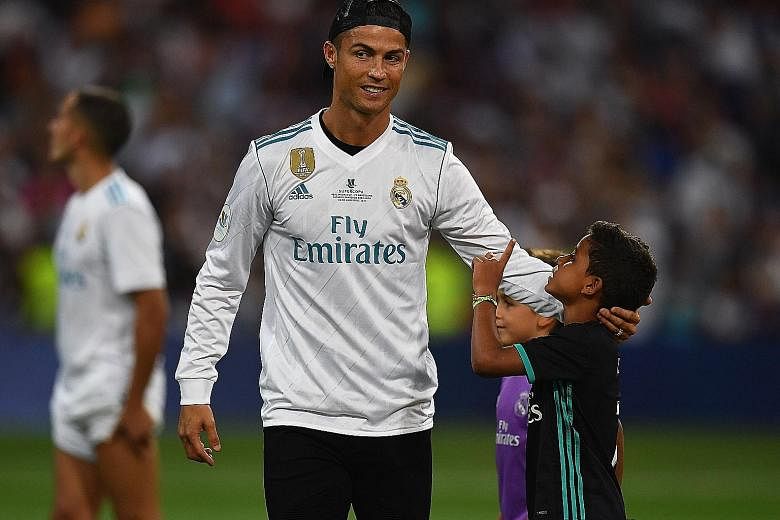Brands have been leveraging on the popular appeal of star athletes to sell their products for over a hundred years, from player cards included in cigarette packs in the late 19th century to Adidas founder Adi Dassler hand-crafting American track legend Jesse Owen's shoes for the 1936 Berlin Olympics.
The proliferation of television in the last century expanded the audience for sport and the reach of advertising, but not until social media's rise in the 21st century have athletes and companies been able to go directly to fans or consumers, radically altering the face of sports marketing.
"Social media marks a shift in power from the corporate to the consumer. The persuasive power of word of mouth outweighs that of advertising, and social media amplifies it," said Associate Professor Ashok Charan from the National University of Singapore (NUS) Business School's marketing department.
And top athletes set the gold standard in a market that has become "somewhat obsessed with influence marketers", said international digital media consultant Kevin Anderson.
"Athletes have both the reach and authenticity marketers want from social media influencers - but also the star power comparable to actors. Add these to the incredible targeting available for social media marketing campaigns, and you have a lucrative mix that translates into significant bargaining power during endorsement negotiations."
The power of the ordinary man's reaction on social media has meant that the most valuable athletes to advertisers and sponsors are the ones who have the best-developed media personas.
Football star Cristiano Ronaldo of Real Madrid, for example, has 295.3 million followers as of last month across Facebook, Twitter and Instagram, the most of any athlete in the world, according to sponsorship analytics company Hookit, which measures the social and digital media value for brands.
-
347
Social media posts Cristiano Ronaldo made last year with a mention or logo of Nike. That translated to
-
$678m
in value for his sponsor Nike.
This has not come about by accident. The Portuguese, known for both his talent and relentless work ethic, also works hard online to enhance his already considerable appeal, giving fans an exclusive look into his world, from the meals he eats to snapshots of family time.
He posted 347 times on his social media accounts last year with sponsor Nike's logo or a mention that garnered 477 million interactions (likes, comments or shares).
This translated to an estimated US$500 million (S$678 million) in value for Nike, according to data from Hookit.
In comparison, arch-rival Lionel Messi of Barcelona, named the world's best player a record five times, posted fewer times (213) for Adidas which generated only 65 million interactions and US$53.5 million in value for his sponsor.
"The best-managed athletes have their own social media presence, separate from the teams they play for.
"They use this presence to communicate a more complete human story (of themselves)," said Associate Professor Anirban Mukherjee from the Singapore Management University Lee Kong Chian School of Business.
"This makes them far more valuable to brands because it deepens their connection to their fans."
-
INSTAGRAM'S MOST FOLLOWED ATHLETES
-
1 Cristiano Ronaldo (football)
113 million followers* -
2 Neymar (football)
82.8 million3 Lionel Messi (football)
81.8 million4 James Rodriguez (football)
33.4 million5 LeBron James (basketball)
33.1 million*as of yesterday
However, the direct nature of social media interactions works both ways, magnifying the positive but also the negative.
"Social media use is a double-edged sword. It's not really possible to erase an inappropriate comment, picture or video. The Internet never forgets," said Julie Posetti, a journalist and social media researcher affiliated with the University of Wollongong in Australia. "Someone, somewhere, will have captured a screengrab."
Added NUS' Prof Charan: "Bad publicity is usually not good for brands; it often devalues them and makes them less desirable."
Some of sports' top-earning athletes have elected to stay away from social media personally, but the impact of such a decision is less than it may seem when fans can also put up their own posts.
Golfer Phil Mickelson, for instance, has never had a problem connecting with his audience.
He does not have a personal Twitter or Instagram account, but that has not stopped the fan favourite affectionately known as Lefty from being ranked fifth on ESPN's 2017 ranking of the world's 100 most famous athletes, and 12th on Forbes' 2017 list of the world's best-paid athletes.
A fan's tweet of the American playfully asking a young spectator for advice at last month's Dell Technologies Championship duly made its rounds on social media, with the PGA Tour's account picking it up.
The ESPN ranking is derived from a formula combining endorsements, social media following and Internet search popularity.
The key to using social media successfully could lie in maintaining a judicious balance between too little and too much.
Singapore swimmer Amanda Lim discovered the power of social media when she used Facebook to locate a young fan in Kuala Lumpur. She had missed passing a soft toy of the SEA Games mascot to Caitlin Chan but turned to the online community for help.
"I found Caitlin within five minutes (of posting) so it's really that powerful," she said.
The story went viral and Lim's efforts won over not just Caitlin but many others as well.
But Lim also said the sheer amount of interactions "can get a little overwhelming".
"For me, social media is still more about how I want to document my life and I want to keep that private."
• The Business of Sport is a monthly series that explores the current trends and talking points of the emerging sport industry.


